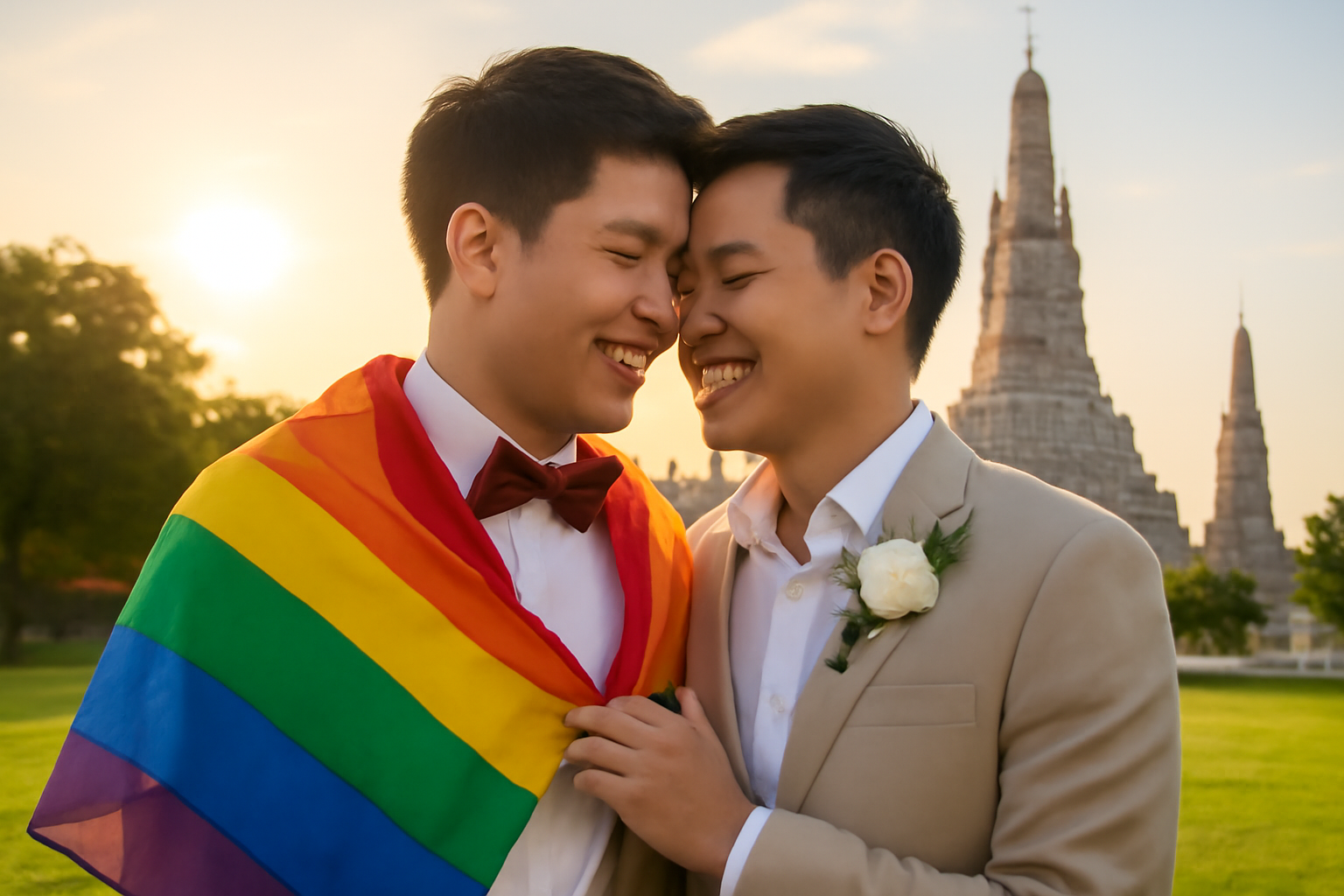
As the sun rises over Thailand, a historic moment is dawning for the LGBTQ+ community. Hundreds of same-sex couples are preparing to exchange vows on Thursday following the implementation of a groundbreaking law that legalizes same-sex marriage in the Southeast Asian country. This significant step places Thailand among the ranks of Taiwan and Nepal, making it one of the few Asian nations to recognize same-sex unions. Globally, more than 30 countries now acknowledge same-sex marriage rights.
Thailand Leads the Way in Southeast Asia
Previously, Thailand's path to marriage equality was a dream for many, and today that dream becomes a reality. The law, which was passed by Parliament last year and received royal assent from King Maha Vajiralongkorn in September, marks a turning point for LGBTQ+ rights in the region. The king's approval underscores the country's commitment to embracing diversity and equality.
"This demonstrates that Thailand is ready to embrace diversity and accept love in all its forms," expressed Prime Minister Paetongtarn Shinawatra. To mark the occasion, the Prime Minister hosted numerous LGBTQ+ couples and activists at government offices, highlighting the government's support for the new law.
A Day of Celebration and Milestones
The newfound rights accompanying these marriages are comprehensive. Same-sex couples will now enjoy full legal, financial, medical, and inheritance rights. Additionally, for the first time in Thailand, these couples can legally adopt children, further solidifying their familial bonds.
In Bangkok, excitement fills the air as more than 200 couples prepare to participate in a mass wedding ceremony. This event, organized by Bangkok Pride in collaboration with local authorities, will take place at a popular shopping mall and feature a "pride carpet" to honor the newlyweds.
Siritata Ninlapruek, an LGBTQ+ activist in Bangkok, shared her joy: "We are all delighted and excited. We’ve been fighting for our rights for over ten years, and now it’s finally happening." The sentiment is echoed by many, including Apiwat Apiwatsayree, who will marry his partner of 17 years. "We’ve been waiting for a long time," he said, capturing the anticipation felt by countless couples.
Continuing the Fight for Equality
While this law is a monumental achievement, challenges remain. The law replaces traditional terms like "husband" and "wife" with inclusive, gender-neutral language, yet full recognition of LGBTQ+ rights in Thailand is a work in progress. Some resistance persists, particularly concerning gender recognition for transgender individuals.
Transgender woman Nina Chetniphat Chuadkhunthod will marry her boyfriend of 22 years, although her personal documents still identify her as male. Despite Parliament's rejection of a proposed gender recognition bill last February, advocates like Hua Boonyapisomparn see the marriage equality law as a stepping stone for broader recognition and rights.
"We should use marriage equality as an opportunity to open another door for gender recognition," Hua stated, emphasizing the importance of continued advocacy. Nada Chaiyajit, a lecturer at Mae Fah Luang University's law school, added, "We have come far in changing the law and there is some way to go for more inclusion. We also still have to fight for social acceptance and that requires more than just changes to the law."
For many, like Chuadkhunthod, today's ceremonies are a hard-won celebration. "I feel like, wow, my dream is close to coming true," she reflects, underscoring the personal triumphs and collective victories of this historic day.
As Thailand takes this significant stride towards equality, the world watches, inspired by the progress within this vibrant nation. The hope is that this moment will catalyze further advancements, not just in Thailand but across the globe, paving the way for a more inclusive future for all.
Related Posts
Triumphant Trans Woman Wins Legal Battle and Inspires Others to Stand Up for Their Rights
Breaking new ground: a landmark victory in transgender rights After battling in courtrooms and enduring endless challenges, Diana Portillo, a transgender woman, has secured a monumental victory in her decade-long fight against workplace discrimination. The result? Nearly $1 million awarded in a historic settlement. But this isn't just a win on paper—it represents a powerful precedent in combati [...]
Pride Month in Latin America: Protests and Demands for Equality
**Celebrating Pride and advocating LGBTQ+ rights in Latin America** Pride Month in Latin America was a lively mix where celebration met activism. Communities united, not just throwing a party but making a stand—demanding equality and pushing governments toward better protection and rights recognition. Throughout Latin America, pride events erupted in marches and cultural displays, each with a c [...]
Transgender Erasure Actions Implemented by National Park Service
```html Trump administration's impact on national park service and transgender recognition The Trump administration made notable moves in undermining transgender representation, which included directing agencies like National Park Service not include "T" and "Q" when they refered “LGBTQ” in any official communication. This move seems part a broader plan by this administration aimed at reducin [...]